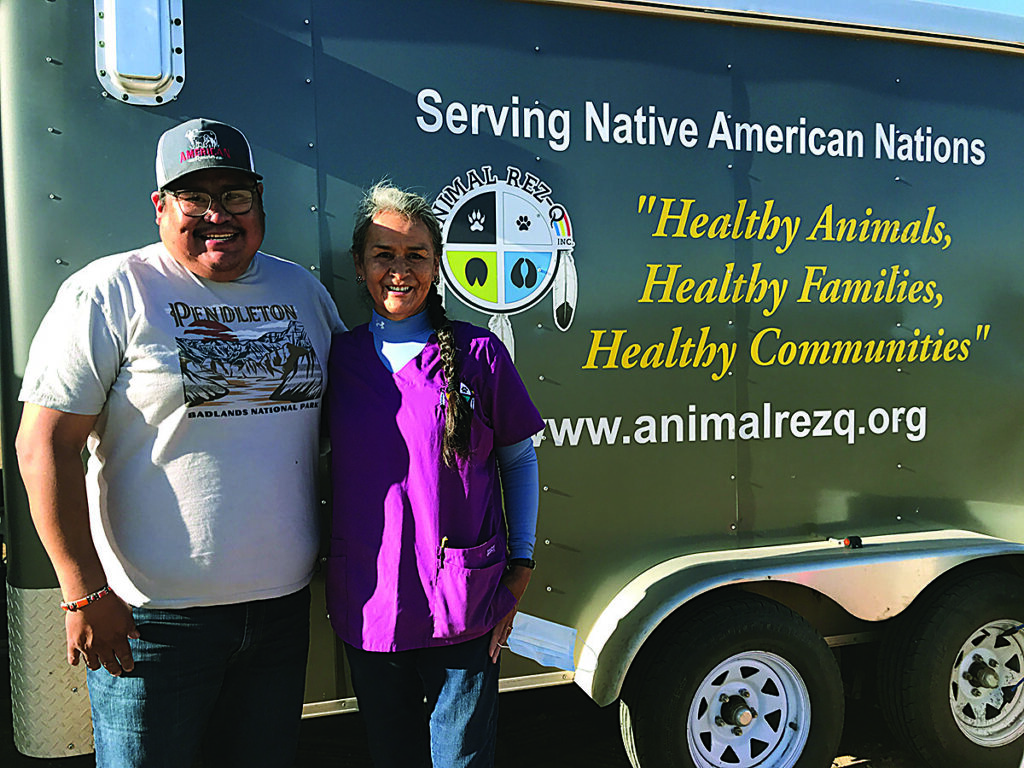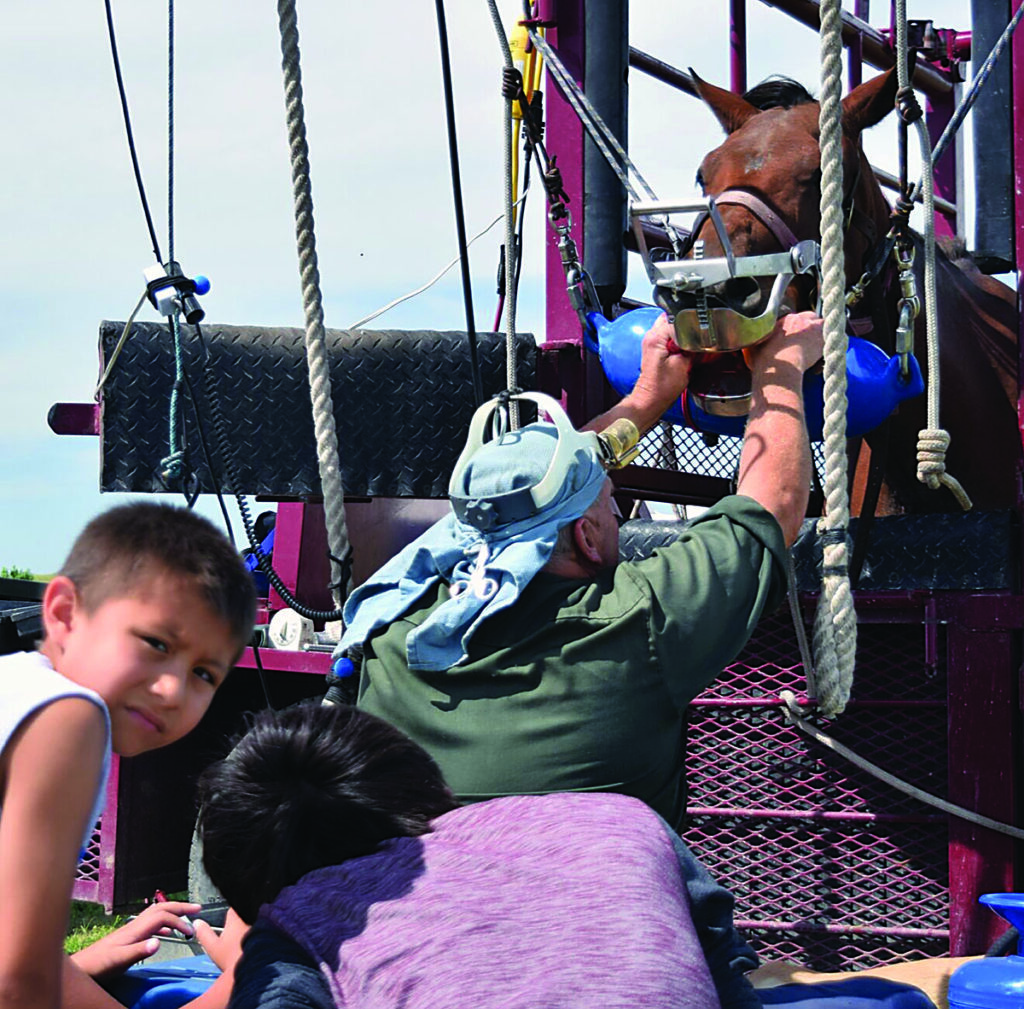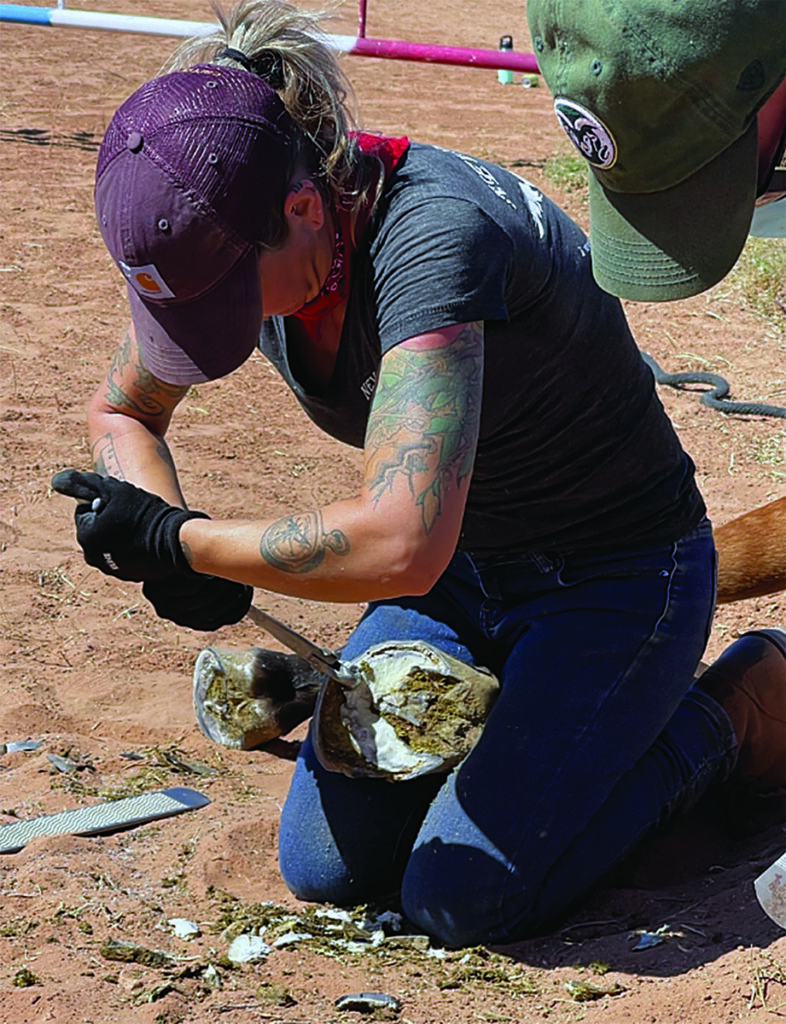By Rita Thompson-Tinsley

Glenda Davis is founder of Rez-Q, a non-profit organization she developed to provide affordable animal wellness services directly into Native American communities. According to Davis, “Given the opportunity to use our affordable cost animal services, we believe that Native Nations and our animal kingdoms will flourish and sustain one another.”

The team of veterinarians on board were dental specialist Rich Fisher, Mark Anderson (formerly of PAH), Laura Waitt Wolker, Victoria Olsen-Mikitowicz (Dr. Miki), and James Foley. This animal care crew included certified/registered equine dental technician Veronica Jones, vet students from both Midwestern University and UC Davis, professional farrier Prunell Charley, and hoof trimmer Jack Pitts along with proficient volunteers from Glenda’s Rez-Q organization. These amazingly dedicated professionals came together like a well oiled machine, with the humility and passion of a volunteer spirit.
The agenda of the Equine Service and Education Trip featured low cost equine dentistry, vaccinations, and hoof care to the residents of the Navajo and Hopi nations. Castrations were completely paid for by a generous grant received from Horse Plus Humane Society of Tennessee. The event was advertised prominently so that all services could be scheduled by appointment only.

Just what did this heartfelt mission mean to the native people and their animals receiving care? One Navajo resident responded, “It’s the only way people can afford it because of the costs and gas prices. It’s good for the Navajo tribe.” Another resident who was bringing in his stud colt for castration explains, “It helps with the cost and with us not having to travel so far. The nearest vet is about two hours away. It means a lot.”
Native American pre-vet student Hailey Cohoe shared first hand, “Out here the horses are in-breeding….The studs are really over populating the herds. There’s no water. There’s no vegetation, so there’s nothing to eat. They’re starving.”
Regarding the educational efforts, Rez-Q founder Glenda stresses the importance of the teaching component with students. According to Dr. Anderson, “The students get the opportunity to geld 10-12 colts before they ever get out of vet school. We look for programs like this to help mentor veterinary students.”

Students rotated. They acted as floaters. Sometimes one was administering anesthesia on a horse for surgery, while another was learning to trim hooves or assist an equine dental specialist learning to operate the specialized equipment. The students all agreed that they are learning a lot. At the end of the day, they gathered around and discussed the day’s happenings to share procedures and experiences.
“I enjoy helping the Navajo Nation,” states Anderson, “but I also enjoy empowering vet students to be better vets. For me, it’s pretty satisfying to just….pay it forward.”
Another Navajo resident emphasized, “A lot of horses on our grassland are really depleting a lot of our good grass, all our natural resources. Castration is a really good population control.”

“We get horses in here that you literally can’t handle,” explains Dr. Waitt. “And then we castrate them so they can become good equine citizens and actually do their jobs.” Waitt continues, “Decreasing the population by castration of stallions and maintaining the quality of the horses is absolutely vital to safety and to horse health. We can’t just let nature do its thing. Nobody wants to see a horse starve to death over a rough winter.”
They all agree that the horses mean so much to these tribes. Glenda expresses that the Navajo consider the horses as the communication between the earth and the sky. “It’s just a positive thing, and they are beautiful creatures.”
“I think volunteering for the Navajo Nations is one of the richest parts of my life,” confides Dr. Rich Fisher. “I treasure these moments more and more….Life is so short and fragile. Trying to make a path of beauty means a lot to me.”

